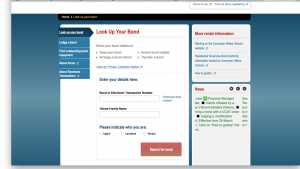One of the most common questions I get as a relocation specialist is, “Is Australia a good place to live?”
From an objective standpoint, Australia stands out. With its powerful passport, world-class cities, and globally recognised education system, it’s easy to see why many are attracted.
Add to that Australia’s high quality of life, stunning natural landscapes, and strong economy, it’s no wonder the country is an enticing destination.
But is Australia the right place for you? That depends on how well you navigate its nuances. Below is an overview of its tremendous potential and insights on how to make the most out of your move.
Is It Worth It To Live In Australia?

Let’s start with why Australia looks so good on paper because, honestly, it really does shine in many ways.
One of the biggest draws for global citizens is the Australian passport – it’s consistently ranked as one of the most powerful in the world. With visa-free or visa-on-arrival access to around 186 countries (as of March 2025), Aussie passport holders enjoy incredible freedom for both business and travel.
And then there’s the cities. Melbourne has been repeatedly crowned the “World’s Most Livable City” by the Economist Intelligence Unit, and cities like Sydney, Brisbane, Adelaide, and Perth are also regulars in top global rankings. These rankings look at everything from healthcare and education to infrastructure, culture, and stability.
Also, the country’s universities consistently make it into the global top 100, with the University of Melbourne, Australian National University, and the University of Sydney leading the pack.
On top of all that, the country’s diverse climate lets you enjoy everything from tropical vibes in the north to four seasons in the south.
For nature lovers, the country is a wildlife wonderland—most of its unique species are found nowhere else on the planet. According to the Australian Wildlife Conservancy, 87% of our mammal species, 93% of reptiles, 94% of frogs, and 45% of our bird species are exclusive to Australia.
But these strengths tell only part of the story. To really understand what living in Australia is like, we need to look at the day-to-day realities that others gloss over. Because that’s where you’ll discover if Australia is actually a good place to live for YOU.
Regional Variations - A Country of Many Australians

Many articles paint Australia with a broad brush, but the reality is that where you choose to live can make a huge difference in your experience.
Sydney and Melbourne are Australia’s two largest cities, offering plenty of job opportunities, world-class dining, and cultural events. They’re perfect if you love a fast-paced, urban environment. However, this comes at a cost—literally.
Sydney, in particular, has some of the most expensive housing in the world, and Melbourne isn’t far behind. We recently moved an executive from New York, who was astonished at the rent prices in Sydney – he truly thought New York was the most expensive place to live. Rent and property prices can take a huge chunk out of your budget, and traffic congestion is a daily reality. That said, if you’re looking for career advancement, networking opportunities, and a vibrant social scene, these cities might be worth the high price tag.
Brisbane and Perth offer a more relaxed lifestyle without completely sacrificing the perks of city living. The cost of living is generally lower than in Sydney or Melbourne, and you still get access to quality healthcare, education, and infrastructure. Brisbane, with its warm climate and proximity to the Gold Coast, is popular for families and those who love an outdoor lifestyle.
Perth, on the other hand, has a strong economy driven by mining and resources, but its relative isolation from the rest of the country can be a factor to consider. While job opportunities in some industries may be more limited compared to Sydney and Melbourne, both cities are growing and evolving, attracting more professionals and businesses.
If you’re looking for a quieter lifestyle, regional towns and rural areas can be an excellent choice. Housing is far more affordable, and you’ll be surrounded by stunning landscapes—whether it’s the beaches of coastal towns, the rolling vineyards of wine regions, or the vast, open spaces of the Outback.
However, job availability can be a challenge, particularly outside of industries like agriculture, tourism, healthcare, and mining. Social integration may also take some time, as smaller communities can be tight-knit, making it harder for you to break in.
The Social Fabric

Australia’s pretty proud of its multicultural roots. We’re talking about a country where nearly 30% of people were born overseas.
But there’s a difference between multicultural statistics and multicultural reality. While Australia embraces diversity in principle, the day-to-day experience can be more complex.
Many migrants gravitate toward their own cultural communities (which I call migrant silos in a previous article), especially in the early years, which is only practical. These networks often provide essential information, job leads, and social support that other channels miss.
Then there’s the “Aussie way,” which isn’t always obvious. It can take time to understand unspoken social rules. Australians often use humour, especially self-deprecation and sarcasm, when other cultures might be more direct or formal.
This can make professional and social situations tricky to navigate – what sounds like criticism might actually be friendly banter, while seemingly casual comments could carry important subtext.
Also, while Australians are friendly – like, super friendly – making deep friendships takes work. Most locals have buddy groups that go way back – school friends, uni mates, work colleagues. Breaking into those circles isn’t impossible, but it takes effort.
As for business etiquette, there’s the “Tall Poppy Syndrome” – that distinctly Australian tendency to cut down those who appear too successful or boast about their achievements. This stems from Australia’s strong egalitarian streak, the belief that everyone deserves “a fair go” and nobody should think they’re “better than” others.
If you come from a culture that celebrates individual achievement and self-promotion, you might need to dial it back. Success in Australia often requires a more humble approach: Let your work speak for itself and share credit generously.
Lastly, while Australia is often praised for being welcoming, discussions around racism and inclusivity remain complex. While many immigrants find Australia to be accepting, experiences can vary depending on ethnicity, background, and location. Major cities like Sydney and Melbourne are highly diverse, with multicultural communities, while smaller towns and rural areas may have less exposure to different cultures. You may encounter subtle biases or challenges in areas like job opportunities or social interactions.
The Emotional and Mental Challenges

Something glossy migration brochures rarely mention is the emotional journey of making Australia home. The land down under sits pretty far down under from most places, and that geographic isolation can hit harder than you might expect.
Australia’s remoteness is both a blessing and a challenge. On one hand, you’ve got this gorgeous, spacious country relatively isolated from many global problems. On the other, you’re really far from… well, almost everywhere else.
For migrants, this often means significant time differences that make catching up with family and friends back home a challenge. When it’s evening in Melbourne, it might be early morning in London or the middle of the night in New York. So casual “just checking in” calls become carefully planned events.
Distance becomes especially noticeable during important life moments. Missing weddings and births or being unable to quickly return home when family members fall ill creates a unique kind of stress. We’ve seen clients struggle with profound guilt about not being physically present during family crises, despite knowing rationally that their migration decision made sense. Holiday seasons can be particularly tough, especially for those used to large family gatherings or specific cultural celebrations that aren’t widely observed in Australia.
This geographic distance often creates an unexpected emotional toll that psychologists sometimes call “migratory grief.” Even when the move to Australia is entirely positive and voluntary, there’s still a mourning process for the life left behind.
You might find yourself missing things you never thought you’d care about – certain foods, familiar streets, even the quality of light in your hometown.
The Lifestyle Adjustments No One Talks About

Moving to Australia isn’t just about big decisions like where to live or what job to take—it’s also about the little things that shape everyday life. Even small cultural differences can have a big impact on how comfortable and settled you feel.
Business Hours
Imagine this: It’s 5 PM, you’re ready to run some errands, and suddenly—everything’s shutting down. Welcome to Australian business hours, where “open late” is a concept that barely exists. Unlike major cities in the US or Europe where shops might be open until 9 or 10 PM, Australian towns and even many urban areas start rolling down their shutters surprisingly early.
Small businesses, local shops, and even some shopping centres operate on what feels like a relaxed schedule that prioritises work-life balance over constant availability. This is a cultural philosophy. Australians value personal time, family dinners, and not being chained to work. So, if you’re used to 24/7 convenience, prepare for a serious mindset shift.
Banks, government offices, and postal services typically operate between 9 am and 4 pm or 5 pm on weekdays only. This means if you need to visit a bank or post office, you’ll likely need to duck out during your lunch break. This can be frustrating initially, but it encourages efficiency – Australians have become masters of online services out of necessity.
Higher Prices
Then there’s “Australia tax” – the unofficial term for the markup on goods compared to other countries. Electronics, clothing, books, and software often cost significantly more than in the US or Europe. This is partly due to shipping costs, smaller market size, and higher wages, but it can be a shock to see prices 15-20% higher (price differences vary significantly by product type) than you’re used to. Online shopping has somewhat leveled the playing field, but international shipping costs and import duties can offset potential savings.
Speaking of money, Australia has been moving steadily toward a cashless society. Contactless “tap and go” payments are everywhere – even for small purchases like coffee – and many younger Australians rarely carry cash at all. The banking system is modern and efficient, with instant transfers between banks (called “PayID” or “Osko”) being the norm rather than the exception.
Transportation
Transportation requires another adjustment. While public transport in major cities is generally good, it doesn’t run 24/7 like in some global capitals. Late-night options can be limited, particularly in smaller cities or suburban areas. Car ownership is almost essential outside metropolitan centers, and fuel prices are higher than in North America (though lower than in Europe).
Aussie Slang
Communication styles might require recalibration, too. Australians generally prefer directness but wrapped in casual friendliness. Formal business speak can come across as stiff or pretentious. You’ll hear plenty of slang and abbreviations – Australians love shortening words and adding an ‘o’ or ‘ie’ to the end (afternoon becomes “arvo,” breakfast is “brekkie”). The frequent use of “mate” crosses all social boundaries – your doctor might call you mate, as might your CEO.
Email and text are preferred over phone calls for many interactions, and Australians tend to get straight to the point rather than starting with extended pleasantries. In meetings, expect less hierarchy and formality than you might find in Asia, parts of Europe, or even North America. Junior staff often contribute directly to discussions with senior management, and challenging ideas (respectfully) are generally acceptable.
Food Culture
The food culture might surprise you too. Despite Australia’s incredible produce and multicultural influences, dining out typically happens earlier than in many countries. Make a dinner reservation for 9 pm, and you might find yourself in a nearly empty restaurant.
The coffee culture, however, is serious business – Australia’s cafe scene rivals any in the world, with high standards even in small towns. Aussies even have their own way of ordering coffee. And while tipping exists, it’s entirely optional and usually modest (10% maximum) when the service is exceptional.
Housing
Housing presents both opportunities and challenges. Australians typically enjoy more space than in many comparable countries, but rental contracts tend to be shorter (often just 12 months), and landlords have considerable power. Rental properties usually come unfurnished – and that means completely empty, without even basic appliances like refrigerators in many cases. Moving costs can add up quickly when you need to transport or purchase large items with each relocation.
Weather
The weather impacts daily life more than you might expect (something that UK migrants often underestimate). Extreme heat in the summer means outdoor activities often happen early in the morning or evening, and energy bills can spike with air conditioning use.
UV radiation is exceptionally strong due to the hole in the ozone layer over Antarctica, making sun protection a serious health issue rather than just a cosmetic concern.
Australia’s Potential is Yours to Shape
So, is Australia a good place to live? Absolutely—but how good it is for you depends on how well you navigate its realities. Success in Australia isn’t just about what the country offers; it’s about how well you adapt, integrate, and take advantage of its opportunities.
Australia offers tremendous potential, but that potential is yours for the taking. It can be an incredible place to live. The question is: Will you make it yours?
How Personnel Relocations Can Help
Our goal is to help you make the right start in Australia—not just by giving you information but by providing real, practical support tailored to your needs.
Our consultation services are designed to help you make informed decisions about where to live, how to settle in, and what to expect in your new environment. Whether you need advice on housing, job opportunities, schooling, or lifestyle adjustments, we can help.
We also have a range of videos and resources to help you understand life in Australia before you even arrive. One of our key video series is “Moving Emotions“, which dives into the emotional side of migration—something that isn’t always discussed in relocation guides.
Reach out for a consultation or explore our content—blogs and videos—to start your journey with the right support.







